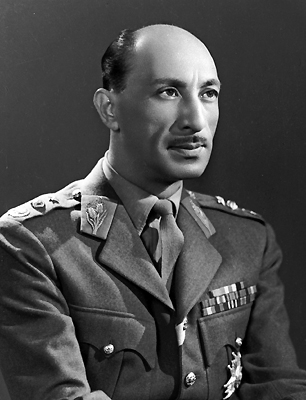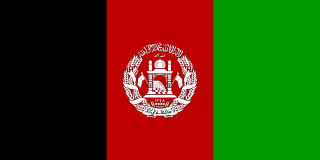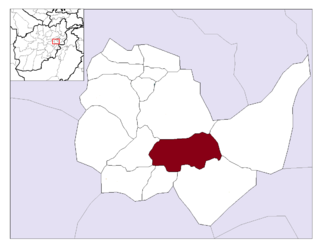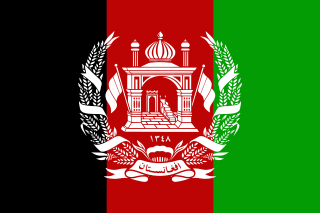
Mohammad Zahir Shah was the last king of Afghanistan, reigning from 8 November 1933 until he was deposed on 17 July 1973. Ruling for 40 years, Zahir Shah was the longest-serving ruler of Afghanistan since the foundation of the Durrani Empire in the 18th century.
The following lists events that happened during 1991 in Afghanistan.
The following lists events that happened during 1951 in Afghanistan.
The following lists events that happened during 1941 in Afghanistan.

The Transitional Islamic State of Afghanistan (TISA), also known as the Afghan Transitional Authority, was the name of the temporary transitional government in Afghanistan put in place by the loya jirga in June 2002. The Transitional Authority succeeded the original Islamic State of Afghanistan, and preceded the Islamic Republic of Afghanistan (2004–2021).

Sardar Shah Mahmud Khan was the Prime Minister of Afghanistan from May 1946 to 7 September 1953, under King Mohammad Zahir Shah's monarchy. He was from the Pashtun tribe of Barakzai Mohammadzai. He was a brother of King Mohammad Nadir Shah, who ousted Habibullāh Kalakāni, and uncle of both Zahir Shah and Sardar Mohammad Daoud Khan, his eventual successor. His other two brothers are Sardar Mohammad Hashim Khan and Sardar Shah Wali Khan. He was married to Safora Sultan, a sister of Amanullah Khan

Abdul Zahir was Prime Minister of Afghanistan in the early 1970s, during the reign of King Zahir Shah.

Bagrami District is located in the central part of Kabul Province in Afghanistan. It is approximately a 30-minute drive east from the capital city, Kabul. The district headquarters is the town of Bagrami.
The following lists events that happened during 1933 in Afghanistan.
The following lists events that happened during 1935 in Afghanistan.
The following lists events that happened during 1936 in Afghanistan.
The following lists events that happened during 1946 in Afghanistan.
The following lists events that happened during 1952 in Afghanistan.
The following lists events that happened during 1957 in Afghanistan.
The following lists events that happened during 1958 in Afghanistan.
The following lists events that happened during 1959 in Afghanistan.
The following lists events that happened during 1963 in Afghanistan.

Humaira Begum was the wife and first cousin of King Mohammed Zahir Shah and the last queen consort of Afghanistan.

The Kingdom of Afghanistan was a monarchy in Central Asia that was established in 1926 as a successor state to the Emirate of Afghanistan. It was proclaimed by its first king, Amanullah Khan, seven years after he acceded to the throne. The monarchy ended in the 1973 Afghan coup d'état.

Afghanistan–France relations are the diplomatic relations between Afghanistan and France. Both nations are members of the United Nations.








